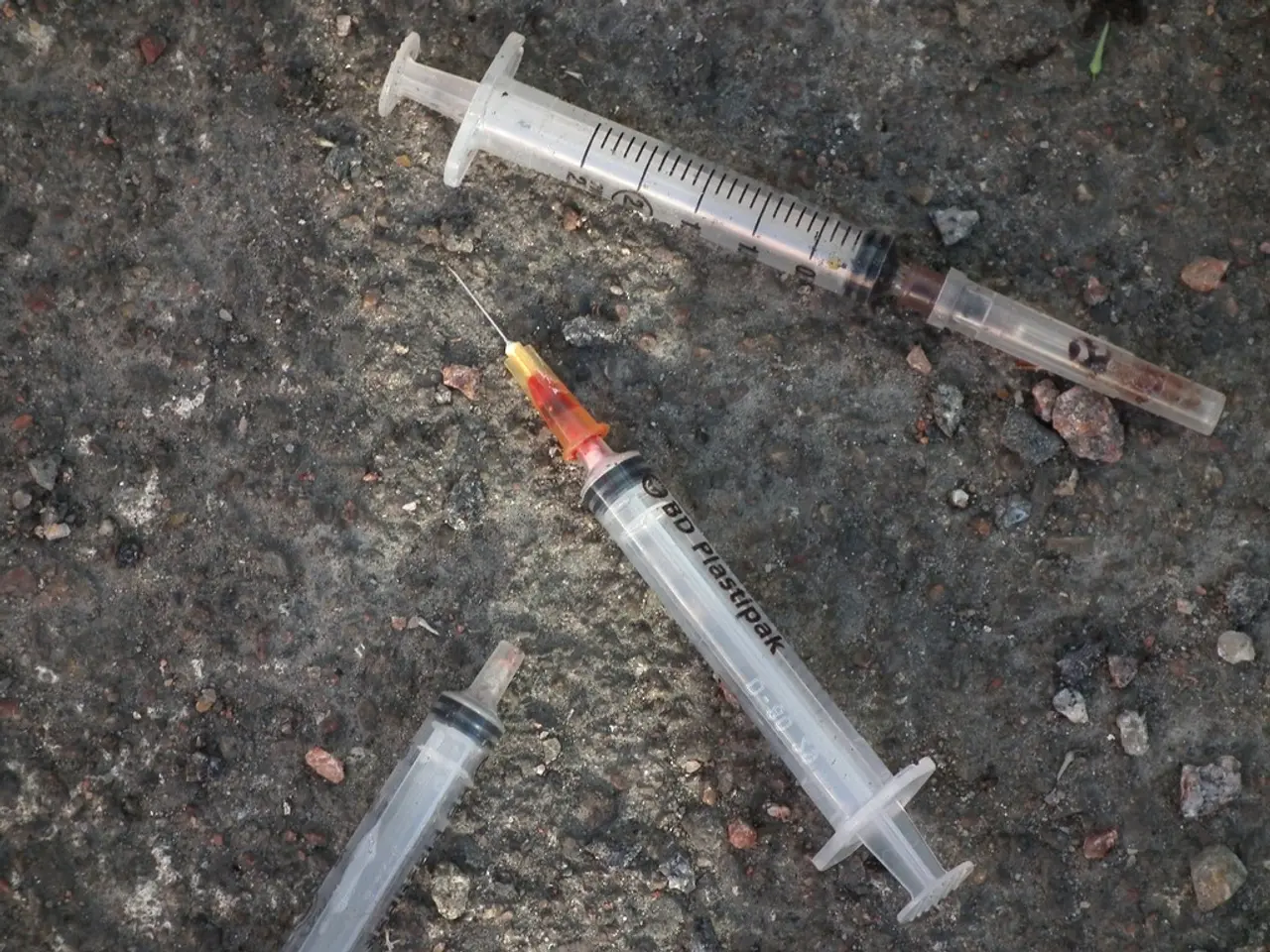Antibody Testing: Understanding the Procedure for Detecting Previous Exposure to COVID-19
In the ongoing battle against COVID-19, antibody testing has emerged as a valuable tool for individuals and healthcare providers alike. These tests can provide insights into an individual's immune response, helping to understand the lingering effects of the virus, often referred to as "Long COVID."
For those who have recovered from COVID-19, antibody testing can offer a glimpse into their immune status. The presence of antibodies, particularly IgG and neutralising antibodies, can indicate a past infection and provide reassurance about potential immunity.
Studies show that SARS-CoV-2-specific IgG antibodies remain detectable in over 90% of individuals six months post-infection, with titers remaining stable over this period. This durability contributes to decreased risk or severity of reinfection and supports adaptive immune memory.
Reinfection with variants such as Omicron often results in higher IgG levels compared to primary infection, indicating that prior exposure or vaccination primes the immune system for a stronger antibody response upon subsequent exposures. Elevated anti-spike IgG correlates with a reduced likelihood of reinfection.
Vaccine-induced neutralising antibodies (NAb) show that multiple doses (including booster doses) extend the duration and magnitude of antibody responses. For example, mRNA vaccine regimens maintain high NAb levels up to at least one year, while other vaccine types require boosters to sustain stronger antibody levels.
Although antibody levels wane over time, the presence of memory B cells and T cell responses complements humoral immunity, contributing to longer-term protection even when measurable antibodies decline.
Healthcare workers and first responders, who are at a higher risk of exposure to the virus, should consider regular antibody testing. For those who have been in close contact with someone who tested positive for COVID-19, getting an antibody test can be beneficial.
Negative results mean that no antibodies were detected, which could indicate that you have not been infected or that it is too early to detect antibodies after an infection. For those who are hesitant about getting vaccinated, an antibody test can provide insights into whether you may already have some level of immunity from a past infection.
Consulting with a healthcare professional is advisable for further guidance if you test positive for antibodies. It is essential to follow guidelines for COVID-19 antibody testing to ensure accurate testing and interpretation.
As the landscape of COVID-19 antibody testing evolves, improvements in the accuracy and reliability of tests are expected. Reputable health organization websites such as the CDC or WHO are valuable sources of information for more details about COVID-19 antibody testing.
Researchers are exploring the potential of antibody tests for other infectious diseases, which could revolutionize public health and disease prevention. Antibody testing can serve as a valuable tool for public health surveillance and tracking the spread of the virus. It may also play a crucial role in monitoring vaccine efficacy and understanding how well vaccines are working in different populations.
In summary, COVID-19 antibodies—especially IgG and neutralising antibodies—persist for many months following infection or vaccination, playing a crucial role in long-term immunity by reducing reinfection risk and severity. This immunity is enhanced through booster doses and is supported by broader immune memory mechanisms beyond antibodies alone.
People in the general population who are curious about their antibody status or want to contribute to research efforts may consider getting tested. Individuals with previous COVID-19 symptoms may want to get tested for antibodies as well.
Engaging in antibody testing can offer individuals insights into their immunity against medical-conditions such as COVID-19. The presence of certain antibodies, like IgG and neutralising antibodies, can indicate a past infection or the effectiveness of vaccines, contributing to health-and-wellness by reducing the risk of reinfection and severity.




